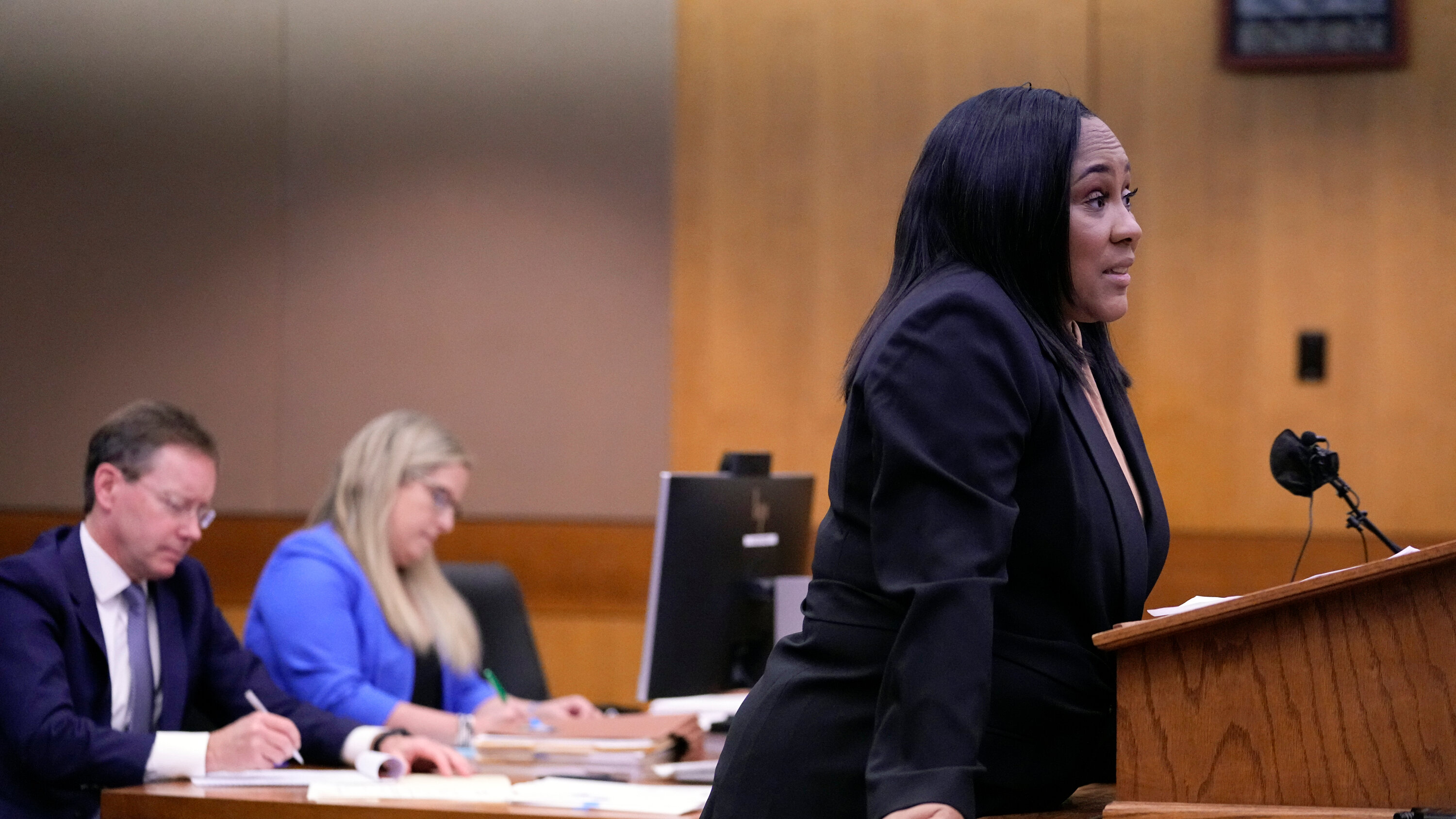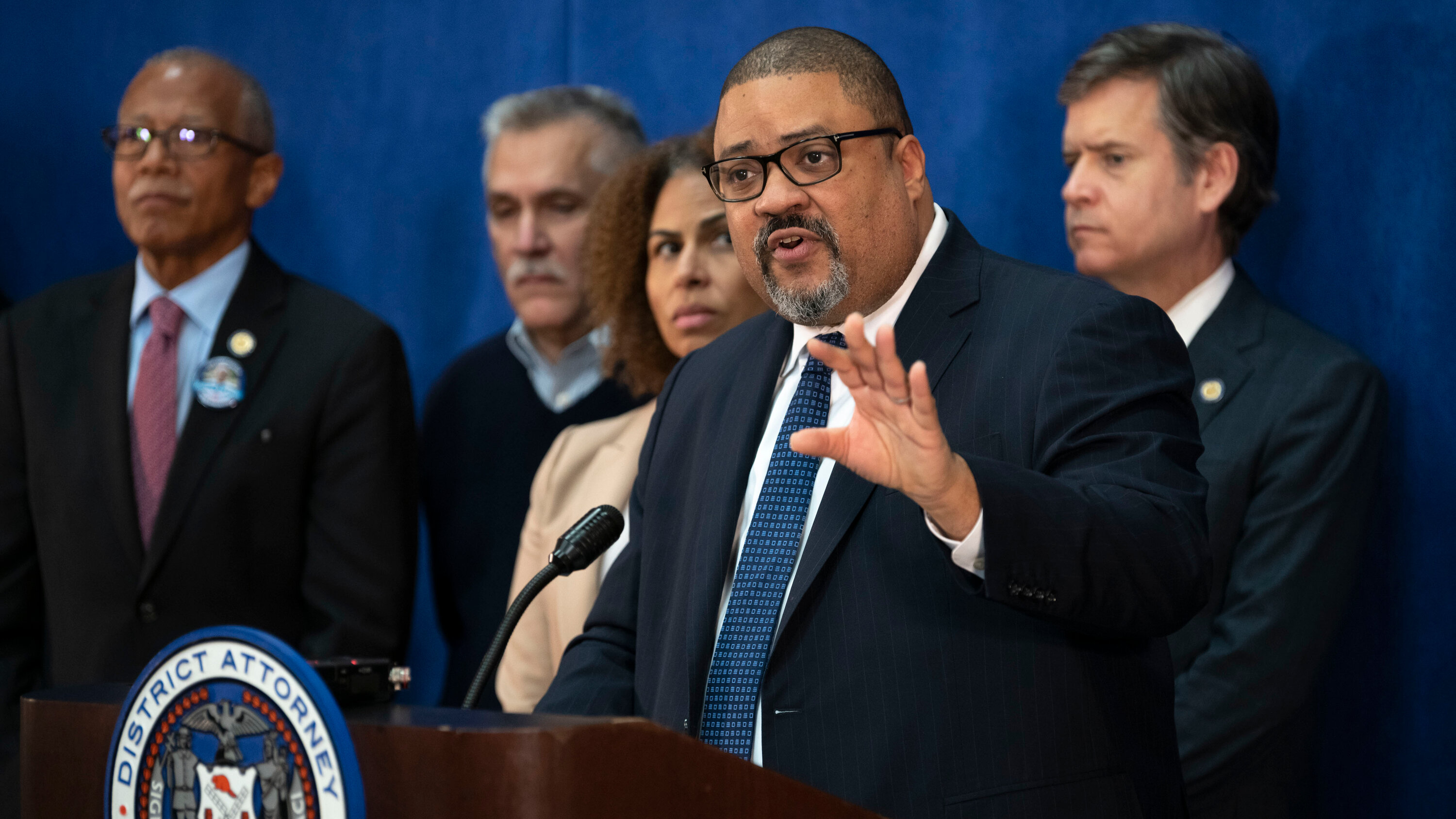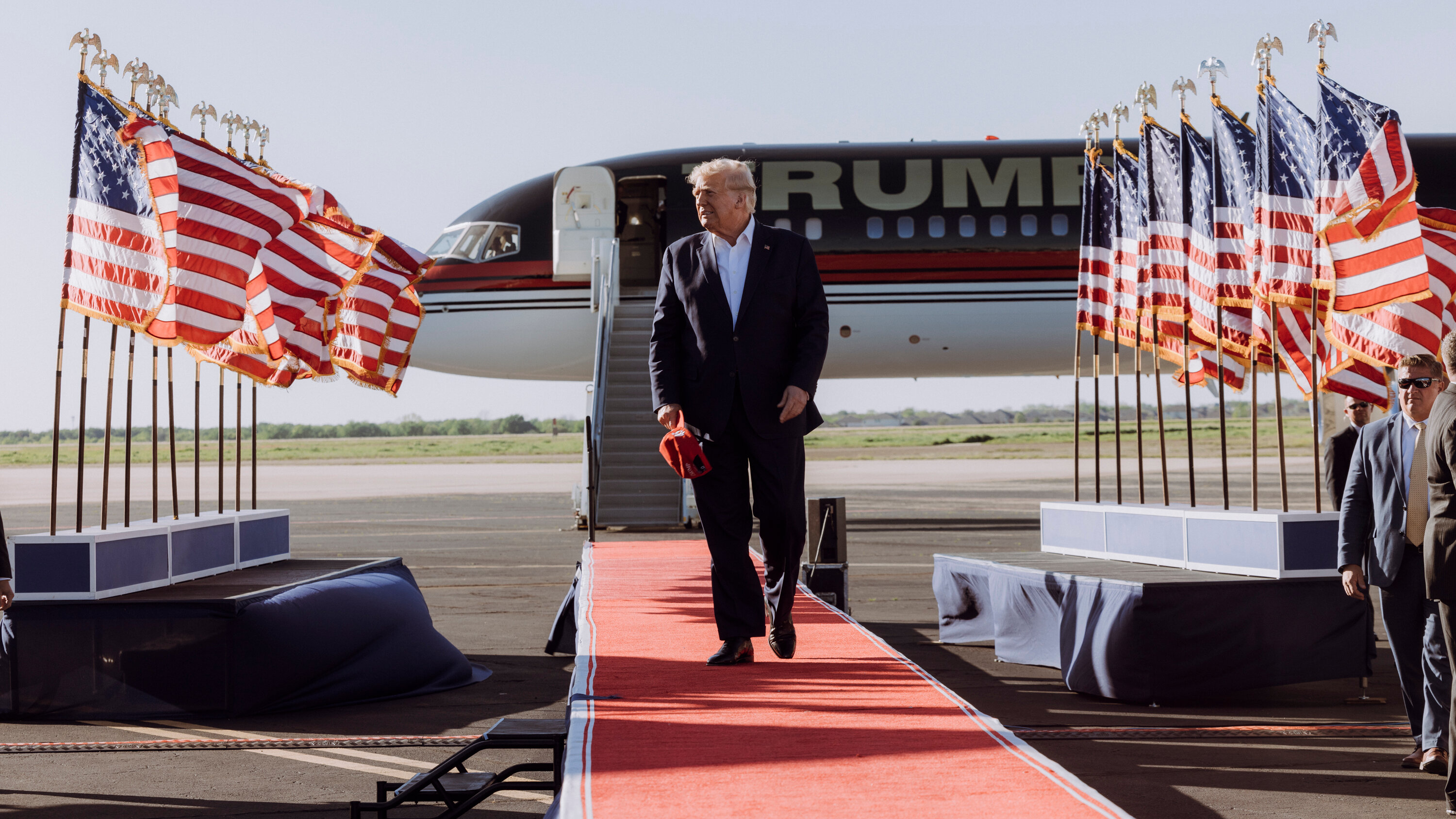In a stunning turn of events, Arizona prosecutors have advised the grand jury not to indict former President Donald Trump in connection with the 2020 election. This decision has sent shockwaves through the political landscape, raising questions about the future of Trump's legal troubles and the integrity of the justice system.
The investigation into Trump's alleged attempts to overturn the election results in Arizona has been ongoing for over a year. The grand jury has heard testimony from dozens of witnesses, including Trump's own allies and advisers. However, prosecutors have now concluded that there is not enough evidence to support an indictment.
The decision not to indict Trump is a major victory for the former president and his supporters. It also raises questions about the future of the January 6th investigation and whether Trump will face any criminal charges for his role in the Capitol riot.
The following table provides a summary of the key details of the case:
| Date | Event |
|---|---|
| November 3, 2020 | Election Day |
| November 7, 2020 | Biden declared the winner of the election |
| December 14, 2020 | Trump's electors cast their votes for him in Arizona |
| January 6, 2021 | Trump supporters stormed the Capitol |
| March 2, 2022 | Arizona prosecutors announce they will not indict Trump |
The decision not to indict Trump is a complex and controversial one. There are many factors that prosecutors must consider when making a decision whether or not to indict someone, including the strength of the evidence, the likelihood of conviction, and the potential impact on the community. In this case, the prosecutors have concluded that there is not enough evidence to support an indictment. This does not mean that Trump is innocent of any wrongdoing, but it does mean that the prosecutors do not believe that they can prove his guilt beyond a reasonable doubt.
The decision not to indict Trump is a major development in the ongoing saga of his presidency. It remains to be seen what impact this decision will have on Trump's future, but it is clear that it has already had a significant impact on the political landscape.
Arizona Prosecutors Advised Grand Jury Not to Indict Donald Trump
The decision by Arizona prosecutors not to indict Donald Trump is a significant development in the ongoing saga of his presidency. It has raised questions about the future of Trump's legal troubles and the integrity of the justice system. Here are seven key aspects to consider:
- Evidence: Prosecutors concluded that there was not enough evidence to support an indictment.
- Witnesses: The grand jury heard testimony from dozens of witnesses, including Trump's allies and advisers.
- Charges: Trump was facing potential charges of election interference and fraud.
- Political impact: The decision not to indict Trump is a major victory for the former president and his supporters.
- Legal implications: The decision raises questions about the future of the January 6th investigation and whether Trump will face any criminal charges for his role in the Capitol riot.
- Public opinion: The decision is likely to be met with mixed reactions from the public.
- Historical significance: The decision is a reminder of the importance of the rule of law and the separation of powers.
The decision not to indict Trump is a complex and controversial one. There are many factors that prosecutors must consider when making a decision whether or not to indict someone, including the strength of the evidence, the likelihood of conviction, and the potential impact on the community. In this case, the prosecutors have concluded that there is not enough evidence to support an indictment. This does not mean that Trump is innocent of any wrongdoing, but it does mean that the prosecutors do not believe that they can prove his guilt beyond a reasonable doubt.
The decision not to indict Trump is a major development in the ongoing saga of his presidency. It remains to be seen what impact this decision will have on Trump's future, but it is clear that it has already had a significant impact on the political landscape.
Evidence
The decision by Arizona prosecutors not to indict Donald Trump is based on their conclusion that there is not enough evidence to support an indictment. This is a significant development in the ongoing saga of Trump's presidency and raises questions about the future of his legal troubles.
In order to indict someone, prosecutors must believe that there is probable cause that the person committed a crime. Probable cause is a lower standard of proof than beyond a reasonable doubt, which is the standard required for a conviction at trial. However, prosecutors must still have a strong case in order to obtain an indictment.
In this case, the prosecutors have concluded that they do not have enough evidence to meet the probable cause standard. This means that they do not believe that they can prove beyond a reasonable doubt that Trump committed a crime.
The decision not to indict Trump is a major victory for the former president and his supporters. It also raises questions about the future of the January 6th investigation and whether Trump will face any criminal charges for his role in the Capitol riot.
The decision not to indict Trump is a reminder of the importance of the rule of law and the separation of powers. It is also a reminder that prosecutors must have a strong case in order to obtain an indictment.
Witnesses
The grand jury heard testimony from dozens of witnesses, including Trump's allies and advisers, during the investigation into his alleged attempts to overturn the election results in Arizona. These witnesses provided valuable information about Trump's actions and intentions, and their testimony was likely a key factor in the prosecutors' decision not to indict him.
- Credibility of witnesses: The credibility of the witnesses who testified before the grand jury was likely a key factor in the prosecutors' decision not to indict Trump. If the witnesses were deemed to be credible, their testimony would have carried more weight with the grand jury.
For example, if a close Trump ally or adviser had testified that Trump had explicitly directed them to overturn the election results, this testimony would have been very damaging to Trump's case. However, if the witnesses were deemed to be less credible, their testimony would have been less likely to sway the grand jury.
- Strength of evidence: The strength of the evidence presented to the grand jury was also a key factor in the prosecutors' decision not to indict Trump. If the evidence was strong, it would have made it more likely that the grand jury would indict Trump.
For example, if the prosecutors had obtained recordings of Trump discussing his plans to overturn the election results, this would have been very strong evidence against him. However, if the evidence was weak, it would have made it less likely that the grand jury would indict Trump.
- Political considerations: The prosecutors may also have considered political factors when making their decision not to indict Trump. If the prosecutors believed that indicting Trump would be too divisive or politically damaging, they may have been less likely to do so.
For example, if the prosecutors believed that indicting Trump would lead to widespread protests or violence, they may have decided that it was not in the best interests of the state to do so.
- Legal considerations: The prosecutors also had to consider the legal implications of indicting Trump. If they did not believe that they could successfully convict Trump at trial, they may have been less likely to indict him.
For example, if the prosecutors believed that the evidence against Trump was not strong enough to meet the beyond a reasonable doubt standard, they may have decided not to indict him.
Ultimately, the decision not to indict Trump was a complex one that was based on a variety of factors, including the credibility of the witnesses, the strength of the evidence, political considerations, and legal considerations.
Charges
The charges that Trump was facing were serious and could have resulted in significant penalties. Election interference and fraud are both felonies, and Trump could have faced up to 10 years in prison if convicted. The prosecutors in Arizona likely considered these potential charges when making their decision not to indict Trump.
The decision not to indict Trump has been met with mixed reactions. Some people believe that the prosecutors made the right decision, while others believe that Trump should have been indicted. The decision is likely to be debated for years to come.
The decision not to indict Trump is a reminder that the justice system is not always perfect. There are times when prosecutors make decisions that are not popular with the public. However, it is important to remember that prosecutors are elected officials who are accountable to the people they serve. They must make decisions based on the evidence and the law, not on public opinion.
Political impact
The decision by Arizona prosecutors not to indict Donald Trump is a major victory for the former president and his supporters. It is likely to have a significant impact on the political landscape, both in Arizona and nationally.
- Bolstering Trump's political standing: The decision not to indict Trump will likely bolster his political standing among his supporters. They will see it as a vindication of his claims that the election was stolen from him, and it will likely energize his base.
This could have a significant impact on the upcoming midterm elections, as Trump's supporters are likely to be more motivated to vote.
- Weakening the January 6th investigation: The decision not to indict Trump could also weaken the January 6th investigation. If Trump is not seen as being criminally liable for his actions on January 6th, it will be more difficult to hold him accountable for his role in the Capitol riot.
This could make it more difficult to prevent similar events from happening in the future.
- Eroding public trust in the justice system: The decision not to indict Trump could also erode public trust in the justice system. Many people believe that Trump should be held accountable for his actions, and the decision not to indict him could lead to the perception that the justice system is rigged in favor of the powerful.
This could have a negative impact on the legitimacy of the justice system and make it more difficult to enforce the law.
- Widening political divide: The decision not to indict Trump is also likely to widen the political divide in the United States. Trump's supporters will see it as a victory, while his opponents will see it as a miscarriage of justice.
This could make it more difficult to find common ground on other important issues and could lead to further polarization in American politics.
The decision not to indict Trump is a complex one with far-reaching implications. It is likely to have a significant impact on the political landscape in the United States for years to come.
Legal implications
The decision by Arizona prosecutors not to indict Donald Trump has raised questions about the future of the January 6th investigation and whether Trump will face any criminal charges for his role in the Capitol riot. The January 6th investigation is a criminal investigation into the events of January 6, 2021, when a mob of Trump supporters stormed the United States Capitol Building in an attempt to overturn the results of the 2020 presidential election. Trump has been accused of inciting the riot with his speech to supporters earlier that day.
The decision not to indict Trump in Arizona is a significant development in the January 6th investigation. It is possible that the decision could make it more difficult to convict Trump on federal charges related to the riot. However, it is also possible that the decision will have no impact on the federal investigation. The January 6th investigation is ongoing, and it is possible that new evidence will emerge that could lead to charges against Trump.
The decision not to indict Trump has also raised questions about whether he will face any criminal charges for his role in the Capitol riot. Some legal experts believe that Trump could still be charged with federal crimes, even if he is not indicted in Arizona. However, it is also possible that Trump will not face any criminal charges for his role in the riot.
The decision not to indict Trump is a complex one with far-reaching implications. It is likely to have a significant impact on the January 6th investigation and on Trump's future.
Public opinion
The decision by Arizona prosecutors not to indict Donald Trump is likely to be met with mixed reactions from the public. Some people will support the decision, while others will believe that Trump should have been indicted. This is a complex issue with no easy answers, and it is important to consider all sides of the argument before forming an opinion.
Those who support the decision not to indict Trump may argue that there was not enough evidence to prove beyond a reasonable doubt that he committed a crime. They may also argue that indicting Trump would have been too divisive and politically damaging.
Those who believe that Trump should have been indicted may argue that he incited the January 6th Capitol riot with his speech to supporters earlier that day. They may also argue that Trump has a history of making false and misleading statements, and that he should be held accountable for his actions.
It is important to note that the decision not to indict Trump does not mean that he is innocent of any wrongdoing. It simply means that the prosecutors did not believe that they could prove beyond a reasonable doubt that he committed a crime.
The decision not to indict Trump is a reminder that the justice system is not always perfect. There are times when prosecutors make decisions that are not popular with the public. However, it is important to remember that prosecutors are elected officials who are accountable to the people they serve. They must make decisions based on the evidence and the law, not on public opinion.
Historical significance
Arizona prosecutors' decision not to indict Donald Trump is a reminder of the importance of the rule of law and the separation of powers. The rule of law means that everyone is subject to the law, regardless of their position or power. The separation of powers means that the government is divided into three branches - legislative, executive, and judicial - and that each branch has its own powers and responsibilities. The decision not to indict Trump shows that no one is above the law, not even the former president.
The decision is also a reminder of the importance of the grand jury system. A grand jury is a group of citizens who are sworn to secrecy and who hear evidence to determine whether there is probable cause to believe that a crime has been committed. In this case, the grand jury heard evidence from dozens of witnesses, including Trump's close associates, but they ultimately decided that there was not enough evidence to indict him.
The decision not to indict Trump is a controversial one, and it is likely to be debated for years to come. However, it is important to remember that the decision was made by a grand jury of citizens, and that it was based on the evidence that was presented to them. The decision is a reminder of the importance of the rule of law and the separation of powers, and it is a sign that no one is above the law.
FAQs on Arizona Prosecutors' Decision Not to Indict Donald Trump
The decision by Arizona prosecutors not to indict Donald Trump has raised many questions. Here are some of the most frequently asked questions (FAQs) and their answers:
Question 1: Why did the prosecutors decide not to indict Trump?
Answer: The prosecutors concluded that there was not enough evidence to prove beyond a reasonable doubt that Trump had committed a crime. This is the standard of proof required for a criminal indictment.
Question 2: What does the decision mean for Trump's future?
Answer: The decision is a significant victory for Trump and his supporters. It is likely to bolster his political standing and weaken the January 6th investigation. However, the decision does not mean that Trump is immune from prosecution. He could still face federal charges related to the Capitol riot.
Summary: The decision not to indict Trump is a complex one with far-reaching implications. It is likely to have a significant impact on the political landscape in the United States for years to come.
Conclusion
The decision by Arizona prosecutors not to indict Donald Trump is a significant development in the ongoing saga of his presidency. It has raised questions about the future of Trump's legal troubles and the integrity of the justice system. The decision is likely to have a major impact on the political landscape in the United States for years to come.
The decision not to indict Trump is a reminder that the justice system is not always perfect. There are times when prosecutors make decisions that are not popular with the public. However, it is important to remember that prosecutors are elected officials who are accountable to the people they serve. They must make decisions based on the evidence and the law, not on public opinion.
Article Recommendations



ncG1vNJzZmiclaK8b7HNnqmgoaOirrPAjaemaKqVobKiv8SsaWiZop7HsLrAZqerp6OasLbAzquqZpmUq7a0scNmnquZnpl6q8HRsmSnp6RiwbB5yKebopukYrGwusClm2asoqq6sXrHraSl